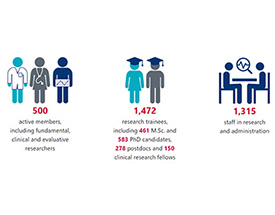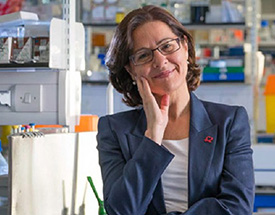- Home /
- About Us /
- Annual Reports /
- Annual Report 2022 /
- Transforming research

RI-MUHC ANNUAL REPORT 2022
TRANSFORMING RESEARCH: COVID-19 AND BEYOND
The COVID-19 pandemic has been more than a rallying call for scientists to combat SARS-COV-2. Coming to grips with this deadly virus has had a transformative effect on our worldview, with repercussions in every domain of biomedical research and health care.
Scientists at the Research Institute of the McGill University Health Centre (RI-MUHC) have made heroic contributions to resolve the crisis and mitigate future threats to public health. Knowing that the setbacks to society are profound, they are mapping a way forward, from new approaches to vaccines for HIV and malaria to a greater focus on mental health needs. We asked RI-MUHC researchers to recount their experiences with the hard-won discoveries and insights gained through COVID-19 research.

PUSHING THE FRONTIERS OF FUNDAMENTAL RESEARCH
- How a global challenge transformed our approach to research
- Dual-purpose antibodies bring us closer to a cure for human immunodeficiency virus (HIV)
- Novel vaccination strategies for parasitic infections
MEETING INDIVIDUAL AND GLOBAL NEEDS
- Health outcomes research focused on solutions
- Closing the gap: Health sciences discoveries with impact
- Digital health: Taking decision making into our own hands
- Creating impactful solutions to clinical needs
- Mental health services for growing needs of children and youth
- Beyond individual projects and experiments
PUSHING THE FRONTIERS OF FUNDAMENTAL RESEARCH
How a global challenge transformed our approach to research

COVID-19 has forever changed our approach to research. As scientists and researchers, we quickly learned how to carry out trials for patients who were isolated at home and how to partner effectively with other hospitals, provinces and countries. We were motivated by a shared goal of reducing complications from the virus. The studies that we led out of the RI-MUHC used novel strategies to recruit patients over the internet, through social media, and by shipping medications across large territories that otherwise might not have benefited from research.
At the RI-MUHC we became leaders in contactless trials of repurposed medications, and we were able to contribute to the global advancement of science in a very meaningful way. We discovered treatments that were effective, but we also figured out which treatments we should avoid because they were harmful, or they simply didn’t work. Our team worked tirelessly to contribute to the advancement of discovering effective treatments for COVID-19 and we are truly proud of what we accomplished, all for the betterment of patient care.
Emily G. McDonald, MD, M.Sc. (Epi), FRCPC
Scientist, Infectious Diseases and Immunity in Global Health Program, RI-MUHC
Associate Chair of Quality and Safety, Department of Medicine, McGill University
Scientific Director, Canadian Deprescribing Network
A clear picture of the cost and efficacy of COVID-19 outpatient treatments
Benefits of fluvoxamine confirmed in new study
Can inhaled corticosteroids alleviate early symptoms of COVID-19?
MedSafer: Working towards safer prescribing
Canadian Deprescribing Network
Dual-purpose antibodies bring us closer to a cure for human immunodeficiency virus (HIV)
Like other diseases, AIDS has been overshadowed by COVID-19. What developments can we bring back to the AIDS-HIV response, to combat a disease that affects people for life and remains a major cause of stigma?
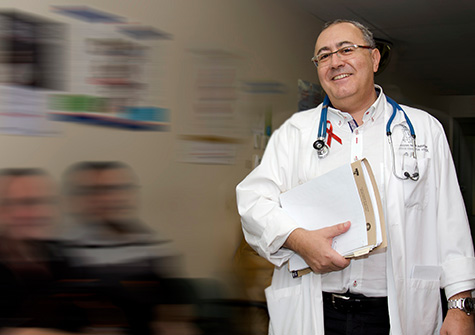
For me, the major contribution of COVID-19 research is the structural and clinical development of antibodies designed to block SARS-CoV-2 and contributed for the design of new anti-HIV antibodies. Such treatments are now used in clinical care for patients with COVID-19 and, at the McGill University Health Centre (MUHC), we are starting new treatment for HIV consisting of a cocktail of anti-HIV antibodies. This strategy has two main objectives. The first is to avoid virus rebound following discontinuation of antiretroviral therapy, offering potentially long-acting immunological treatment. The second is to try to eradicate HIV “hiding” in dormant CD4 T cells. Therefore, COVID‑19 research may have speeded up research on a cure for HIV.
In my own research program and in clinical practice at the MUHC’s Chronic Viral Illness Service, we study COVID-19 vaccine response in persons treated for HIV to better understand determinants of long-term vaccine success. We also explore the role of infused HIV-specific antibodies on viral control and HIV cellular reservoirs.
Jean-Pierre Routy, MD, FRCPC
Senior scientist, Infectious Diseases and Immunity in Global Health Program, RI-MUHC
Clinical director, Chronic Viral Illness Service, MUHC
Novel vaccination strategies for parasitic infections

Before the COVID-19 pandemic, most vaccines were developed using conventional platforms for inactivated, attenuated, subunit or toxoid vaccines. During the pandemic, novel strategies including mRNA and viral vector technology were used to create SARS-CoV-2 vaccines in record time. This allowed proper R&D and safety testing to be conducted while authorizing a vaccine for use within a year of the pandemic’s announcement.
Both mRNA and viral vector technology are cheap and quick to manufacture – important considerations when creating vaccines, particularly for the developing world. As poorer countries are plagued with parasites, these novel technologies become front runners for vaccine constructs to fight parasitic infections. My group is working on mRNA vaccines for schistosomiasis and cryptosporidiosis in collaboration with Moderna. These infections, caused by parasites, have a worldwide distribution, creating a large footprint on global public health. With the use of mRNA and viral vector technology for vaccination against COVID-19, we now have a strong rationale for the use of these technologies against other pathogens. This has opened the door to new collaborations with pharmaceutical companies and other international partners.
Momar Ndao, DVM, M.Sc., PhD
Scientist, Infectious Diseases and Immunity in Global Health Program, RI-MUHC
MEETING INDIVIDUAL AND GLOBAL HEALTH NEEDS
Health outcomes research focused on solutions

At the Centre for Outcomes Research and Evaluation (CORE) at the RI-MUHC, we are examining myriad facets of the pandemic, including COVID-19 testing, vaccination and management, alongside impacts of the pandemic on persons with chronic disease. Jonathan Campbell and Dick Menzies have identified saliva samples as a viable and cost-effective option to nasopharyngeal swabs; Emily McDonald and Todd C. Lee have compiled evidence suggesting that fluvoxamine can reduce COVID-19−related hospitalization; and Sasha Bernatsky has determined vaccines to be effective in persons with inflammatory diseases.
Ongoing CIHR-funded studies are examining virtual rehabilitation following COVID-19−related hospitalization (Tania Janaudis-Ferreira), educational interventions to increase vaccine uptake among the incarcerated (Nadine Kronfli), adverse effects of vaccines in kidney transplant patients (Ruth Sapir-Pichhadze), digital and rapid self-sampling in South Africa and India (Nitika Pant Pai), deployment of connected technologies during the pandemic (Bertrand Lebouché), rapid molecular COVID-19 testing and integration with tuberculosis testing (Madhukar Pai), and in my own work, socioeconomic disparities in diabetes care and hospitalization before and during the pandemic.
CORE members also led key advocacy efforts in the past year, including a letter to the prime minister with roughly 230 signatories, urging Canada to support the TRIPS waiver to achieve vaccine equity. We hosted the World Health Organization’s Dr. Peter Singer, special advisor to the director general, who spoke to us eloquently on vaccine inequity.
This body of work and outreach is providing critical evidence to shape our responses, health systems and policies, both for the ongoing pandemic and future health emergencies. In partnership with epidemiologists worldwide, my colleagues at the CORE have demonstrated the value of nimble research responses, calling upon their diverse fields of expertise to address the COVID-19 pandemic while continuing efforts to anticipate, and mitigate, new and ongoing public health crises. We are proud to generate research that focuses on solutions.
Kaberi Dasgupta, MD, M.Sc.
Director, Centre for Outcomes Research and Evaluation, RI-MUHC
Senior scientist, Metabolic Disorders and Complications Program, RI-MUHC
Learn more: CORE News
Closing the gap: Health sciences discoveries with impact
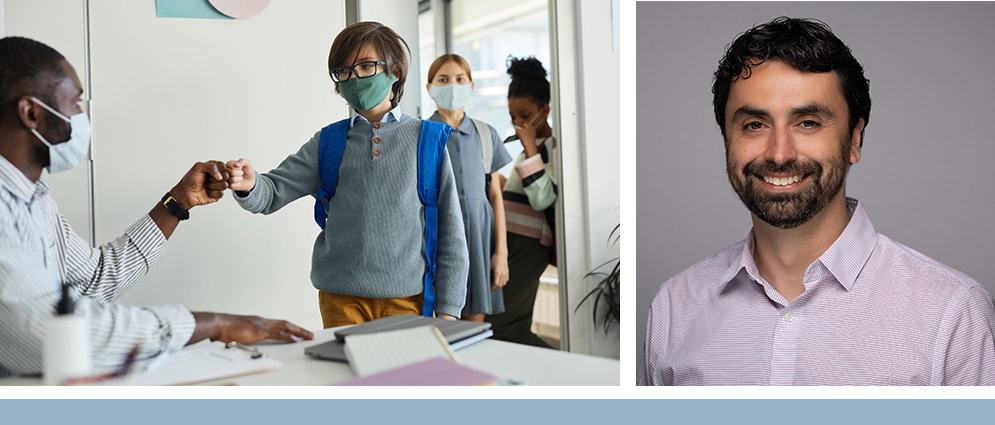
The COVID-19 pandemic has brought to the forefront the need for multi-institutional and cross-disciplinary research to promptly answer questions during a public health emergency. It has been awe-inspiring to me, as a voting member of the National Advisory Committee on Immunization, to see the speed at which these collaborative efforts produced findings that were instrumental in informing Canada’s COVID-19 vaccination policies.
In that vein, the Canadian Institutes of Health Research recently provided $6.7M to establish the Pediatric Outcomes Improvement through Coordination of Research Networks (POPCORN) platform that will monitor COVID-19 infections, vaccination and social impacts among children and youth. Several RI-MUHC scientists have leadership roles in POPCORN, which aims to catalyze nimble, high-quality, multinetwork, multidisciplinary child health research in Canada.
Another vital form of collaboration, less familiar to many researchers, but one that has risen to prominence, is engagement with the public through media. Uncertainty, misinformation and the politicization of science have surrounded the COVID-19 pandemic, often limiting the effectiveness of public health interventions. Traditional news media and social media are influential sources of information for Canadians, shaping our opinions, choices and behaviours, including those related to our health. Many scientists at the RI-MUHC have done tremendous work in various media to provide clear, accessible and unbiased science-based messaging for the public, while also advocating for responsible, evidence-based policy from our political leadership. These are key elements in the efforts of Canada’s scientific community to translate ever-expanding new knowledge into effective policy and practice.
Jesse Papenburg, MD, M.Sc.
Scientist, Infectious Diseases and Immunity in Global Health Program, RI-MUHC
Centre for Outcomes Research and Evaluation, RI-MUHC
Jesse Papenburg wins Principal’s Prize for sharing the science behind COVID-19
$6.7 million to study the impacts of COVID-19 on children
Experts: COVID-19 (McGill Newsroom)
RI-MUHC leads study of antiviral use in children hospitalized for influenza
RI-MUHC researchers review diagnostic tests for COVID-19
National Advisory Committee on Immunization
Digital health: Taking decision making into our own hands
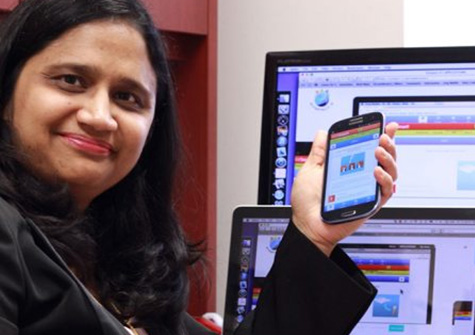
In health care, diagnostics was once undervalued and ignored, until the COVID-19 pandemic happened and changed that reality. The COVID-19 pandemic made a universal case for timely testing, as test results became the ultimate determinant of all our plans – socialization, travel and work – worldwide.
With increase in demand for rapid testing and screening technologies, approvals from regulatory bodies were expedited in a rapid turnaround time. Establishing clinical and public health action plans was critical to preventing the spread of the virus in communities. At the same time, the world learned to distinguish between screening tests used in public health and testing to diagnose for clinical decision making in hospitals. Thankfully, lay people now understand the importance of screening/diagnosis. Home tests have primed everyone about the need to take decision making into our own hands when health systems become overwhelmed and are unable to meet their needs.
The good news is that at-home tests have become a commonplace health product. The pace of digital transformation in medicine has accelerated, brought about by accelerated development and adoption of digital health and artificial intelligence solutions. This has challenged resistance to adopting digital health, and digital models of care are slowly gaining traction.
COVID-19 has indeed led to great realizations: We have learned to rethink our priorities, understood the value of our family, homes and lives, and realized that we can all contribute to keeping ourselves, our loved ones and our communities healthy.
Nitika Pant Pai, MD, MPH, PhD
Scientist, Infectious Diseases and Immunity in Global Health Program, RI-MUHC
App-based HIV self-testing program leads to rapid detection of new infections and efficient connection to care
Multiplexed technologies are paving the way to rapid and equitable screening for sexually transmitted infections
Dr. Nitika Pant Pai’s website
DRIVERS OF CLINICAL RESEARCH
Creating impactful solutions to clinical needs

The Clinical Innovation Platform (CLIP) officially opened at the Montreal General Hospital in September 2021. The goals of the CLIP are to identify unmet needs in clinical care and develop solutions through health technology that can be commercialized. The CLIP is a platform in the RI-MUHC where clinicians, engineers, software developers, business professionals and entrepreneurs can mix, discuss ideas, and create impactful solutions. Circumstances during the COVID-19 pandemic constrained our activities, especially in person, but taught us valuable lessons about being nimble and resourceful that can endure after the crisis resolves.
Researchers working with the CLIP have, in this short time, developed technology to extract oxygen from air, liquefy it, and make it compatible with ventilators; they have also developed technology to manage patients remotely through wearables and AI-based data management. They have been able to train surgeons remotely using holograms generated from imaging volumetric datasets. They have validated a novel design for PPE protective gowns to minimize contamination of the healthcare worker. Another project has provided access to cloned synthetic datasets derived from large pools of actual patients to test AI algorithms and data analytics, without privacy issues. These solutions to challenges posed by the pandemic clearly transcend its scope.
During the first nine months since its launch, the CLIP has, moreover, developed a business plan, raised $3 million, set up an advisory committee, and developed a membership model from inside and outside the MUHC.
Gerald Fried, MDCM
Medical Director, Clinical Innovation Platform
Investigator, Injury Repair Recovery Program, RI-MUHC
Learn more about the Clinical Innovation Platform
Mental health services for growing needs of children and youth

Pandemic-related restrictions have contributed to mental health problems on many levels. COVID-19 has led to greater social isolation, loneliness, lack of physical exercise, and family stress, affecting everyone but most importantly, impacting children and youth. Our research has shown that parental stress and work-life management constraints increase the risk for maltreatment or neglect in vulnerable families. While far from outweighing the costs associated with the pandemic, one positive development is that COVID-19 opened the door to an increased awareness of mental health risk and issues among children and youth, medical and behavioural health professionals, educators and other specialists, as well as the general public.
Facing pandemic-related adversity has contributed to more important routine screening for depression and anxiety. We are beginning to realize that the measure of true resilience is the testing of human capacities through hardship. Resilience is probably best defined as the capacity to adapt to stress; it is most reliant on our cognitive perspective of stress and our perceived ability to manage it. Hence, as we increase detection, there is a critical need to improve early access to mental health services that meet the growing needs of children and youth. The widening provision of health services that offer social support and positive coping skills is most promising.
Tina C. Montreuil, PhD, PsyD, M.Ed.
Scientist, Child Health and Human Development Program, RI-MUHC
Associate Professor, Faculty of Education, McGill University
Associate Member, departments of Psychiatry and Pediatrics, Faculty of Medicine and Health Sciences, McGill University
Director, Childhood Anxiety and Regulation of Emotions Laboratory (C.A.R.E.) Research Group
Member, Ordre des psychologues du Québec
Beyond individual projects and experiments
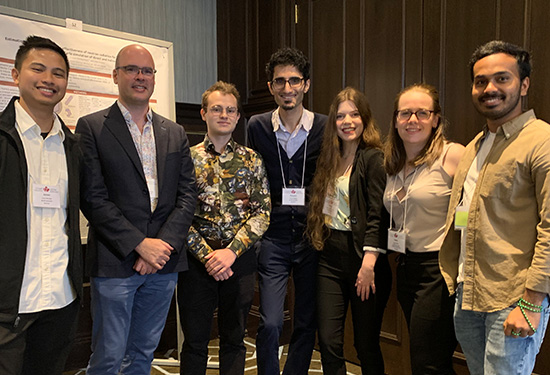
I believe that COVID-19 research has reminded us of what we knew already but often tend to forget: that research is an investment in our future.
The COVID-19 vaccines of today are the fruit of the research infrastructure, funding commitments and intellectual innovations of yesterday. The development of the vaccines that brought the pandemic under control did not start with the clinical trials that tested them in 2020. Rather, these vaccines are the product of decades of basic and applied research across the spectrum of science. Whether it is the X-ray scattering experiments used to study the lipid nanoparticles that encapsulate the mRNA molecules, the developments in mass spectrometry that allowed the genome of the SARS-CoV-2 virus to be sequenced, or the data-sharing networks that disseminated the sequence across the world, one thing is for sure – we are benefiting today from the research investments of yesterday.
If there is a lesson to be learned by the research community, I believe it is that we should invest heavily in research infrastructure and not just in individual projects and experiments. If we can build solid research infrastructure today, without doubt it will pay off tomorrow.
John Kildea, PhD, MCCPM
Scientist, Cancer Research Program, RI-MUHC
Director of research and innovation, Opal Health Informatics Group
Principal investigator, Quebec SmartCare Consortium
Opal patient portal
The Quebec SmartCare Consortium
2021-2022 RESEARCH HIGHLIGHTS
This sampling of achievements from the past year includes work by teams from all eight RI-MUHC research programs. Each program also presents highlights in the “Year in review” section accessed from the home page of this report.
RI-MUHC team receives Discovery of the Year Award from Québec Science magazine
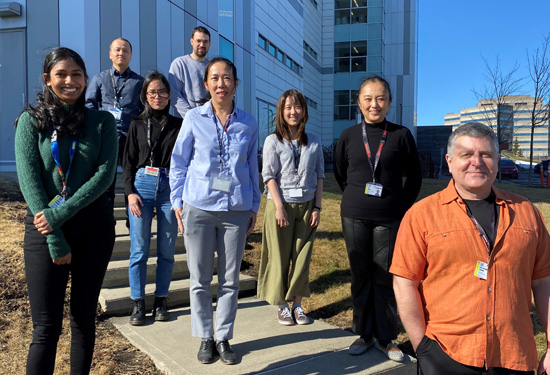
Dr. Jean-Jacques Lebrun’s team won the 2021 Québec Science Discovery of the Year Award for uncovering the genetic mechanisms at work in triple-negative breast cancers and finding a promising therapy.
“To date, very few studies have used genome-wide, in-vivo CRISPR genetic screening as we did,” says Dr. Lebrun. “Our study highlights how powerful and robust this technology is to develop innovative and clinically relevant therapeutic modalities for cancer treatment. We know that many drugs fail in the clinical phase, but I’m optimistic because we started from the right mechanism to develop a concrete solution.” (Nature Communications.)

New Quebec study evaluates long-term complications of COVID-19
Testimonies from people suffering from long-term effects of COVID-19 are multiplying, but knowledge in this regard remains limited. A transdisciplinary, multicentre prospective cohort study of adults previously infected with COVID-19 in Quebec aims to fill this gap. Winner of an international competition, the IMPACT QUEBEC COVID-19 Long Haul Study is supported by a grant from Pfizer Inc.
“By conducting this long-term follow-up study, we hope to develop our capacity to detect and mitigate potential long-term complications of the viral infection," says Dr. Thao Huynh, study lead and member of the Cardiovascular Health Across the Lifespan Program at the RI‑MUHC.
Toward a better understanding of neurodevelopmental disorders
Wei-Hsiang Huang, PhD, early career researcher in the Brain Repair and Integrative Neuroscience Program, and his team strive to understand how the brain develops and what occurs in neurodevelopmental disorders such as autism and Smith–Magenis syndrome (SMS). They were recently able to reverse some of the behavioural phenotypes of Smith-Magenis syndrome in mice by overexpressing the gene of a protein known as BDNF, paving the way to the development of new therapies. (Human Molecular Genetics)
Research on drug targets and a new G protein inhibitor
Discoveries in the laboratory of senior scientist Stéphane Laporte, PhD, of the Metabolic Disorders and Complications Program at the RI‑MUHC, exemplify the vital and wide-ranging applications of basic research. The laboratory develops novel fluorescently tagged biosensors for studying GPCR signaling and trafficking in live cells, with the goal of identifying small molecules that regulate these processes.
In the past year, Stéphane Laporte’s study published in Nature Communications uncovered a new inhibitor molecule, which acts in a unique way to target small G proteins involved in cancer. Nathalie Lamarche-Vane, PhD, senior scientist in the Cancer Research Program at the RI-MUHC, collaborated in this work, which may lead to the development of new classes of drugs for cancer therapies.
Stéphane Laporte was also part of a team of international researchers who discovered the working mechanism of potential drug targets for various diseases such as cancer, rheumatoid arthritis, and COVID-19. The findings published in Molecular Cell uncover the inner workings of cell receptors that are involved in cancer progression and inflammatory diseases.
The sky is not the limit

RI-MUHC researchers are collaborating with a team of astronauts to help answer important questions about chronic pain and sleep. The Axiom Space Ax-1 mission will conduct six different experiments exploring questions with down-to-earth implications for pain management: Can a short trip to space change pain sensation? Can a short trip to space influence genomic processes of bone physiology and inflammation in response to pain? And how does a short trip to space affect bones, muscles and ligaments?
Drs. Pablo Ingelmo, Evelyn Constantin and Jean A. Ouellet of the Child Health and Human Development Program are taking part, along with Lisbet Haglund, PhD, and Svetlana Komarova, PhD, of the Injury Repair Recovery Program at the RI-MUHC. “What makes this project so interesting is that a pediatric hospital is steering research that we hope will lead to the development of new technology and treatments, not just for children, but for adults as well,” says Dr. Ingelmo.
TB and COVID-19, a joint battle?
A deluge of COVID-19 research has not deterred researchers from the McGill International TB Centre at the RI-MUHC from working to end tuberculosis (TB). Dr. Madhukar Pai, of the Infectious Diseases and Immunity in Global Health Program, is focused on tackling TB and COVID-19 together. Colleagues in the Translational Research in Respiratory Diseases Program bring a spectrum of expertise to the work of ending TB. Dr. Ahmad Khan harnesses artificial intelligence for TB detection; Dr. Dick Menzies is finding shorter, safer and more effective treatments, as well as updating guidelines for front-line healthcare workers; and Dr. Kevin Schwartzman aims to reduce outbreaks with an effective screening approach.

RI-MUHC Animal Resources Division sets a high bar
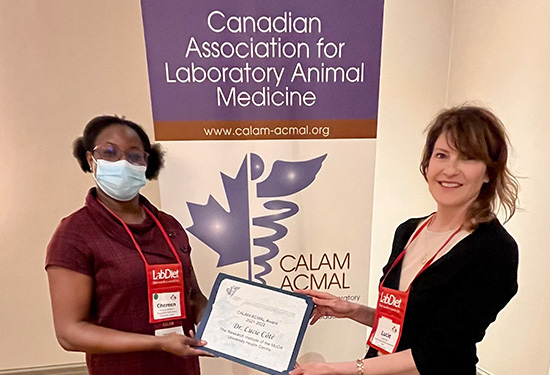
The North American 3Rs collaborative (NA3RSC) recognized the RI-MUHC this year as one of ten institutions in the continent — and the first in Canada — to have completely switched to an animal health monitoring program that does not require sentinel animals. This approach can significantly reduce the number of animals needed in human health research.
Such initiatives are possible due to the high calibre of staff supporting research at the RI-MUHC. Lucie Côté, DVM, director of the Animal Resources Division, RI-MUHC, was awarded the CALAM/ACMAL Veterinary Award at the Annual General Meeting of the Canadian Association for Laboratory Animal Medicine (CALAM) in 2022. Dr. Côté was recognized for her outstanding contributions to laboratory animal science, particularly her achievement in establishing over the past years the excellent and complex RI-MUHC animal care program, and her commitment to diversity and inclusion within her team. Additionally, she was acclaimed as 2023-2024 president of CALAM.

Related news (2021-2022 research highlights)
RI-MUHC team receives Discovery of the Year Award from Québec Science magazine
New Quebec study evaluates long-term complications of COVID-19
New G protein inhibitor identified, with potential for cancer therapies
Discovery of mechanics of drug targets for COVID-19
The sky is not the limit
TB and COVID-19, a joint battle?
The RI-MUHC is first in Canada to adopt sentinel-free animal health monitoring
